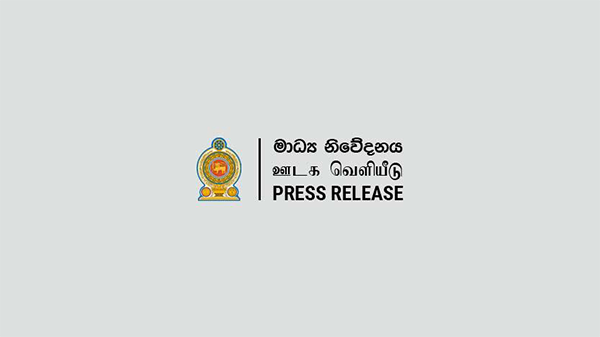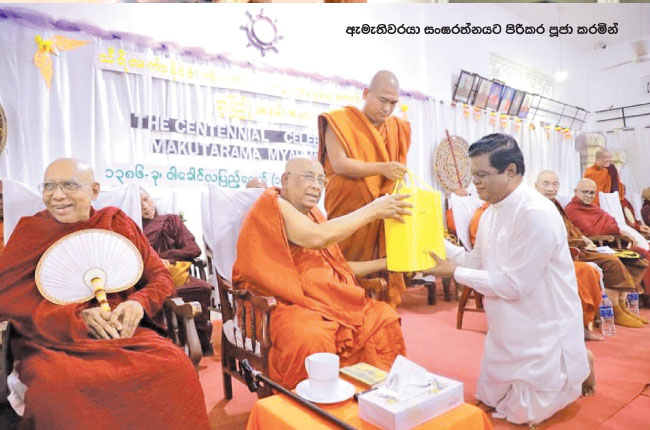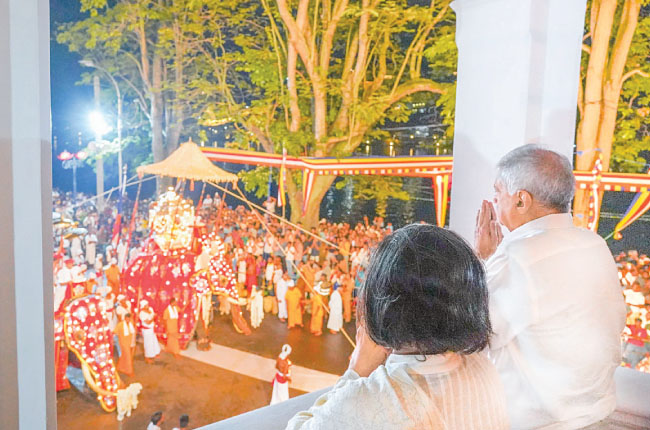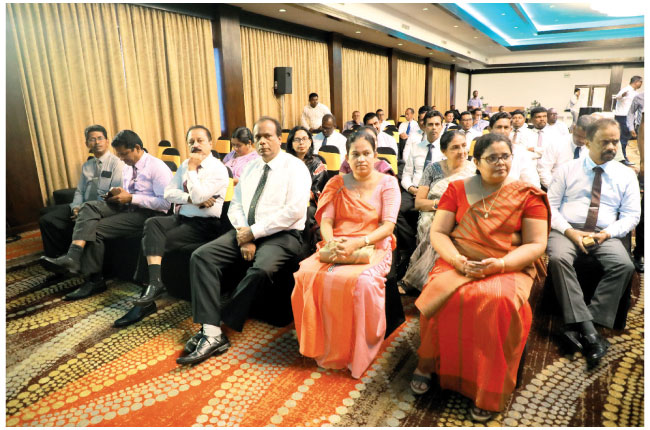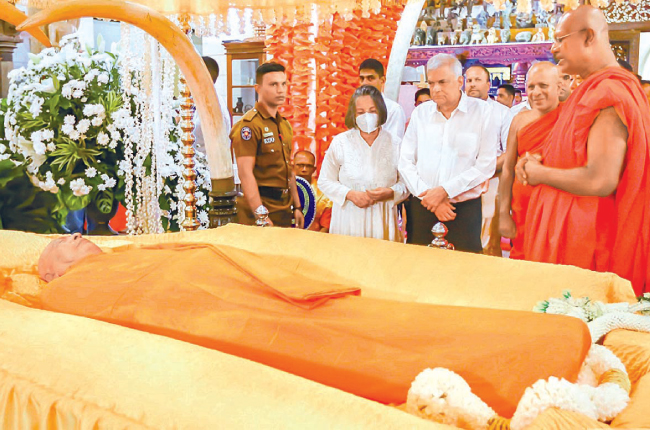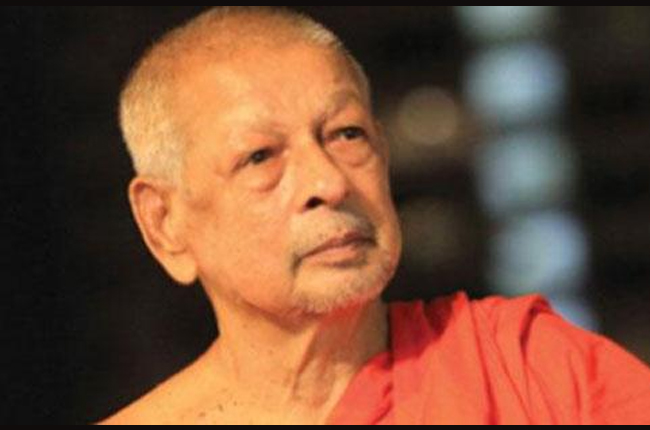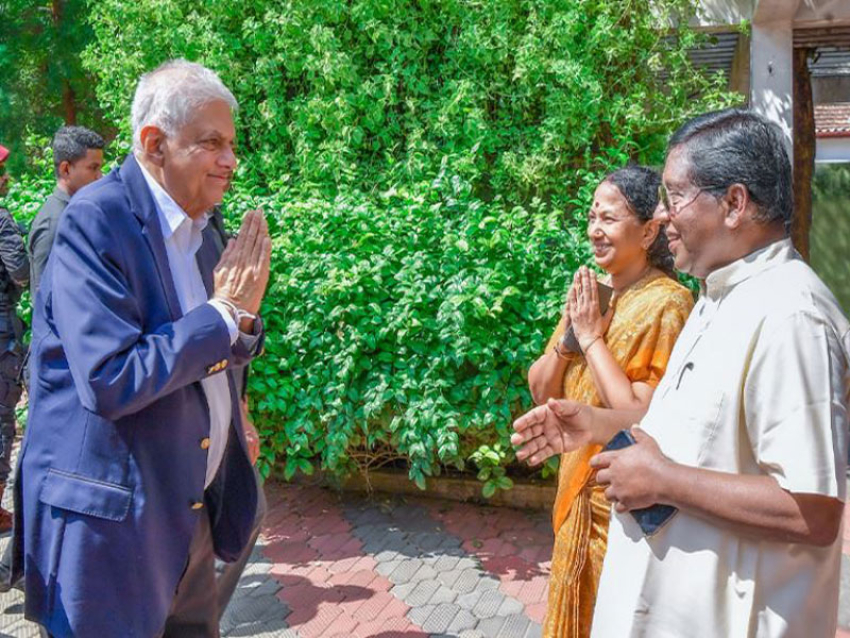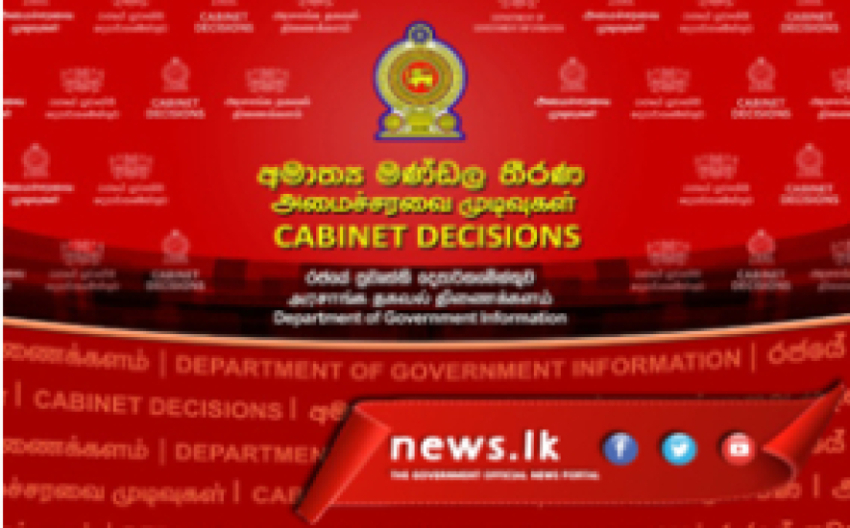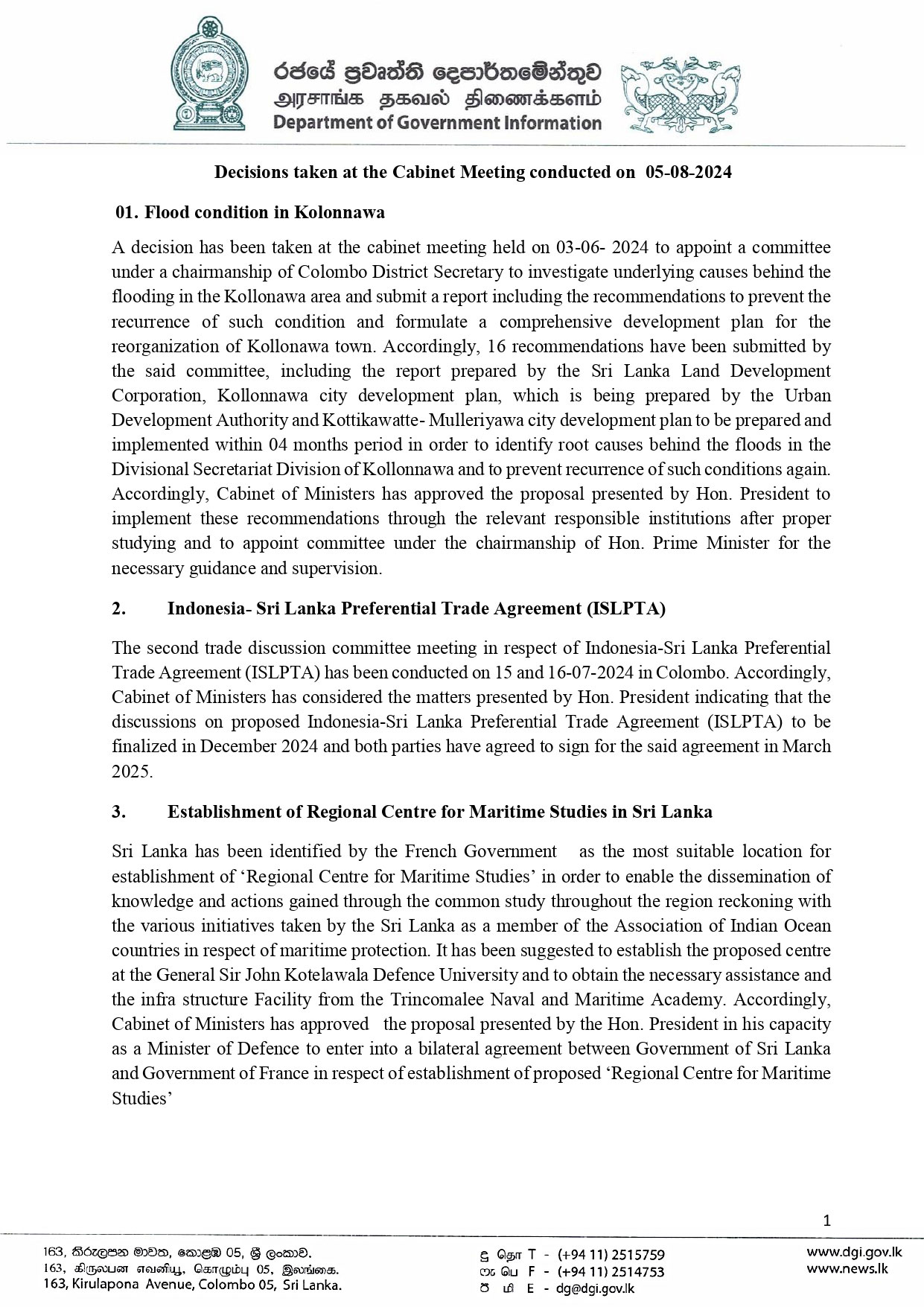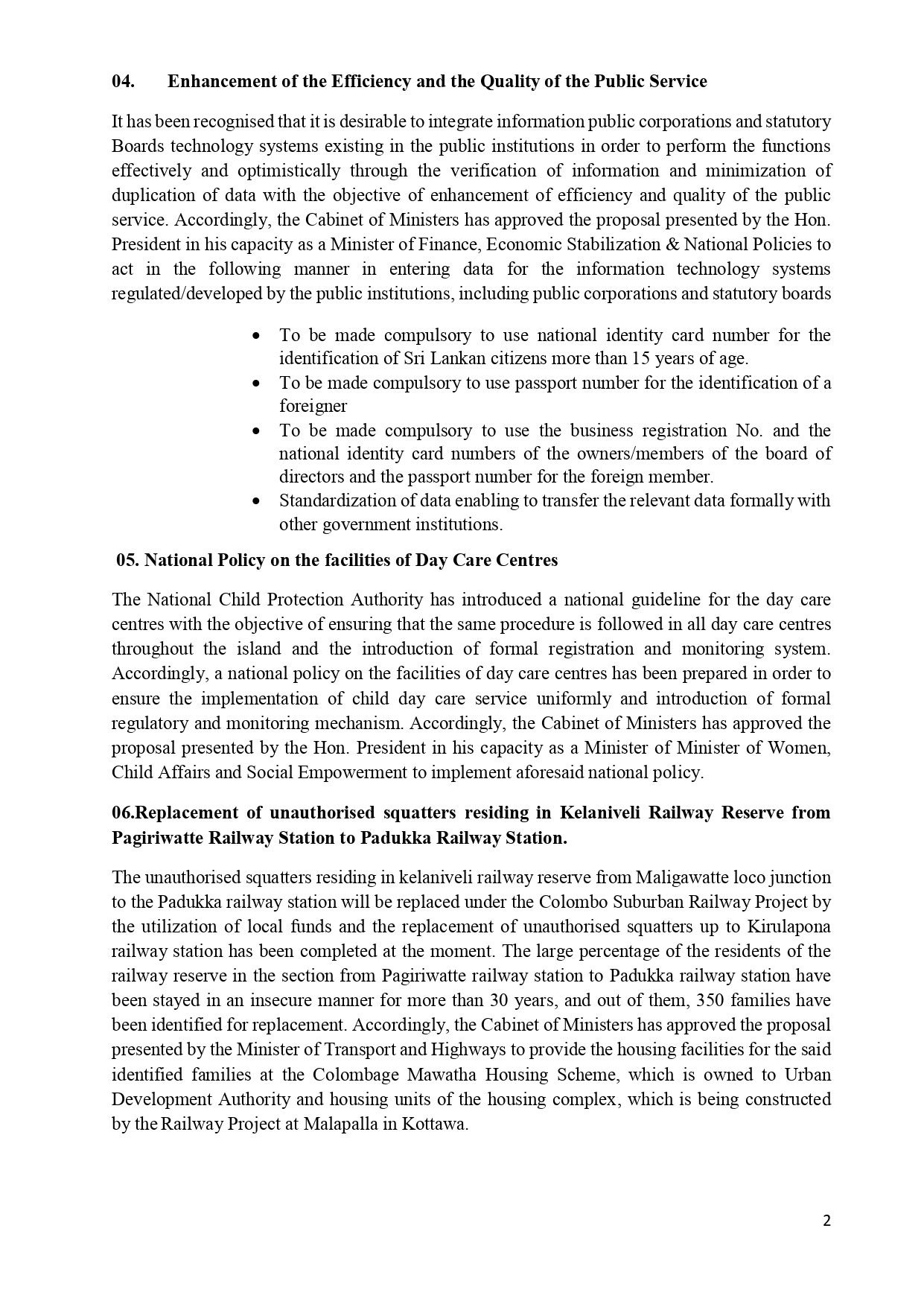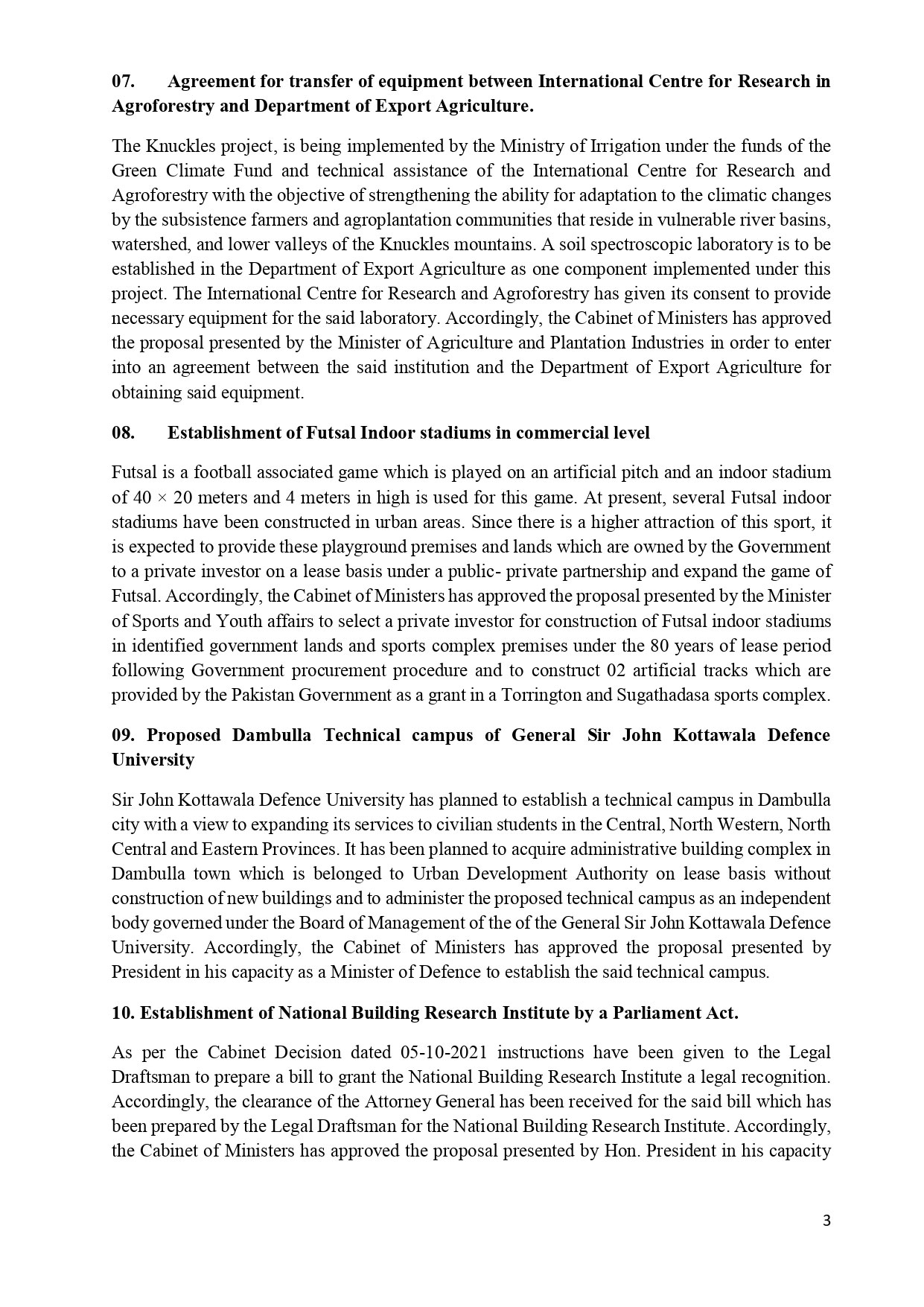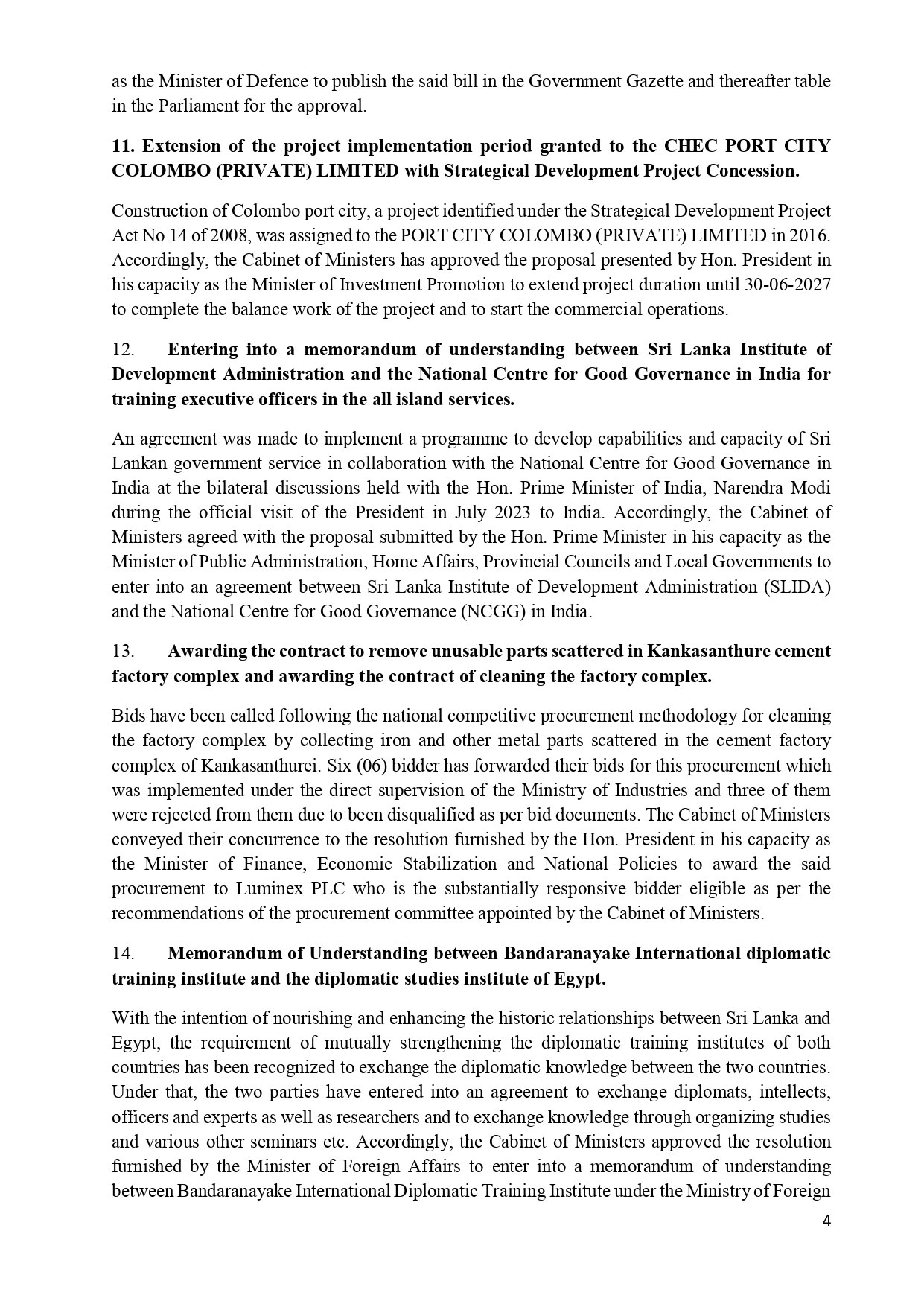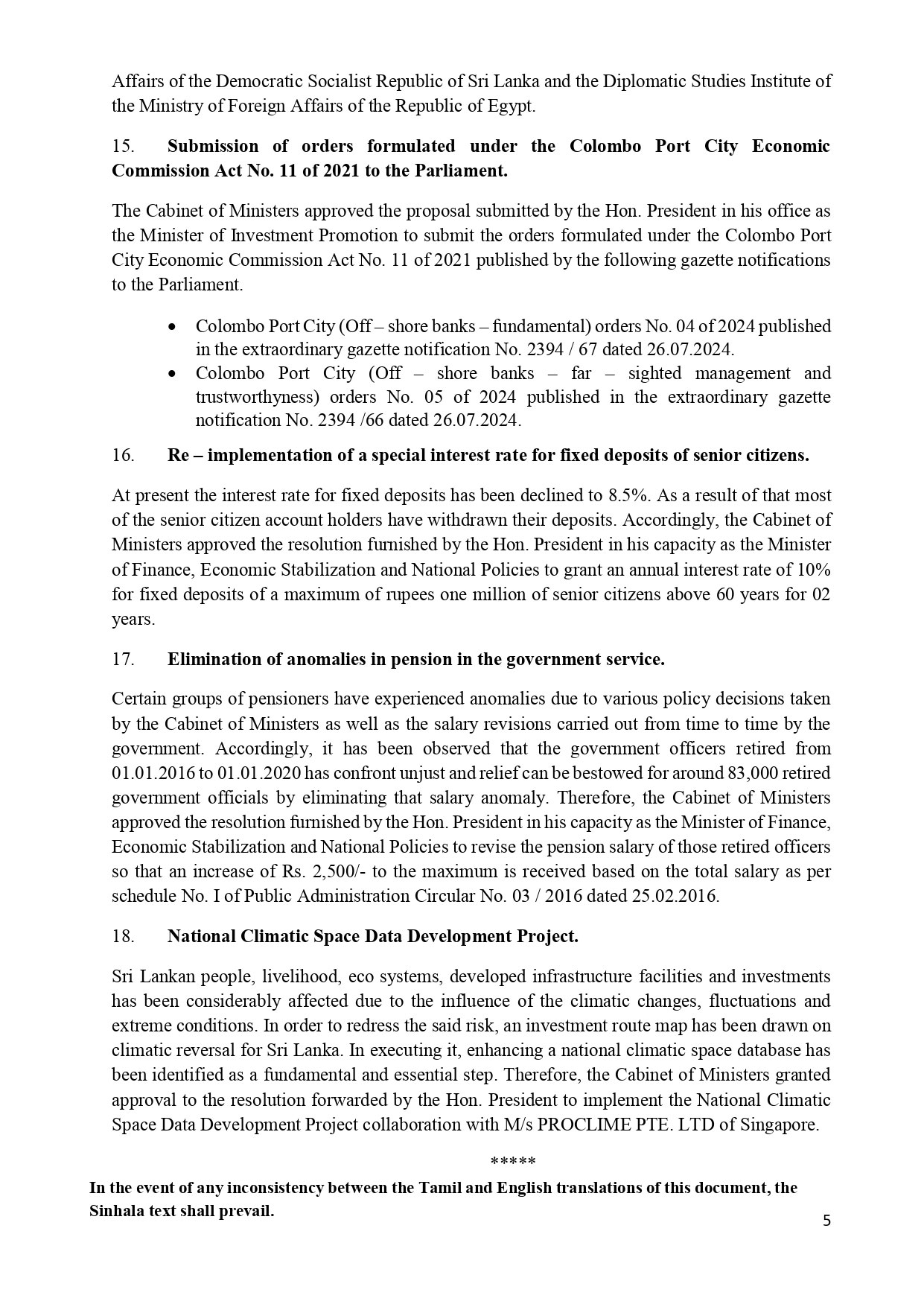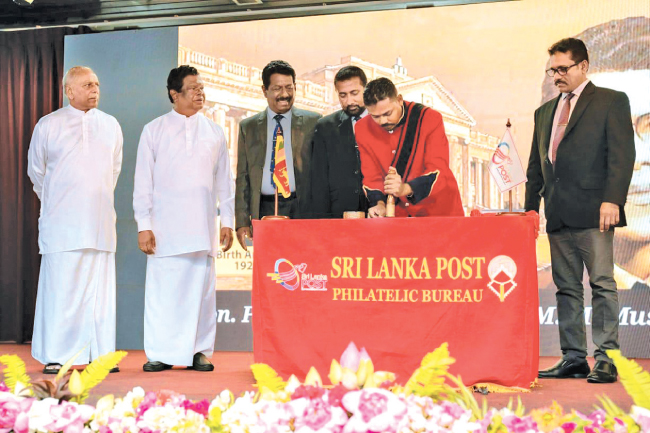If we violate them, we will not receive the necessary funds, leading to another economic collapse in our country:
Never defended anyone accused of corruption:
President Ranil Wickremesinghe highlighted that altering agreements with the International Monetary Fund (IMF) or creditors could jeopardise the country’s financial support.
“It is not possible to break any agreements made with the International Monetary Fund and our lending countries. These existing targets and benchmarks are non-negotiable. If we violate them, we will not receive the necessary funds, leading to another economic collapse in our country,”he said.
He said that there won’t be any problems for Sri Lanka if the country adheres to the IMF agreement. He added that the IMF will not change its benchmarks; these remain constant for all countries.
“We have reached an agreement with the IMF, and we must implement it. While others are proposing changes, they need to specify their plans. The IMF will not change its benchmarks; these remain constant for all countries. For example, if you propose giving something for free and offset this by increasing VAT to 25%, the IMF might agree if the numbers are feasible. However, you cannot alter the benchmarks, revenue figures, or expenditure figures,”he said.
The President while urging all candidates to be honest with voters about the country’s economic challenges said that he is contesting the presidential election for the future of the country and its people.
He emphasised that he has no personal conflicts with anyone, having twice saved the country during severe economic crises.Speaking at a meeting with media heads at the Cinnamon Grand Hotel in Colombo yesterday, the President stated that while other candidates may be running for their personal ambitions, he is contesting the presidential election for the future of the country and its people.
Addressing concerns about corruption, the President noted his efforts in enacting anti-corruption laws and announced plans to present the Bill on the Proceeds of Crime Act to the Cabinet next week. He reiterated that he has never defended anyone accused of corruption.
President Wickremesinghe made these remarks during his first media engagement since officially entering the presidential race.
Addressing the gathering President Wickremesinghe said; I decided to meet with the media for the first time after submitting the deposit for my candidacy for the Presidential Election.
I am serving as president today because no one else stepped up to take on this role. Within two years of assuming the presidency, I addressed the country’s fundamental problems. Solving Sri Lanka’s issues is no small feat; it took Greece ten years and Indonesia eight years. Some doubted how Sri Lanka could tackle these challenges.
However, I believed they could be resolved in a shorter period. I discussed this matter with then-President Gotabaya Rajapaksa and accepted the challenge without fear. I was confident that by engaging with the International Monetary Fund (IMF) and making the hard decisions, we could recover. Initially, there was no party support for me. A faction of the Sri Lanka Podujana Peramuna (SLPP) joined us, while another went to the opposition. Some from the Sri Lanka Freedom Party (SLFP) aligned with us, while others joined the opposition. I took on this responsibility by forming a government without a party. We have now completed the initial work and have laid the foundation to free the country from bankruptcy. Let’s continue on this path.
People suffered because the country’s economic system collapsed, and the increased tax burden became unbearable for some. I am sorry for that, but without these measures, the economy could not have been managed. Politics in our country is not prepared for the truth.
Stability needs to be established. A country cannot be developed without stability. Yesterday, while watching the events in Bangladesh on television, I thought about what might have happened if I hadn’t taken over. Even though the Bangladesh Prime Minister was asked to step down, no one was ready to take over. When the army intervened, protesters were not in favour of the army taking over. They suggested appointing Mr. Yunus as Prime Minister.
However, according to the constitution, a Prime Minister must be a Member of Parliament. What would happen if we found ourselves in that situation? Fortunately, we managed to form a government. This is why we now have the opportunity to hold the Presidential Election. The future of the country will be decided in this Presidential Election.
We must decide whether to continue on our current path towards becoming a developed country, provide relief to those suffering and build a promising future for our youth, or revert to old politics, risking another economic collapse and a return to an era of shortages and queues.
There is no need to consider personal appearances. The decision should be based on whether the candidates have the strength and policies to save the country. This Presidential Election is not about the future of the candidates but the future of the country and its people. We must decide whether to proceed systematically and solve the country’s problems with determination or risk returning to the situation of 2022.
Different people can make various promises, but many of them are unrealistic. Fulfilling such promises would require increasing VAT. That is the reality we face. We must decide whether we are prepared to tell the truth and save the country or seek power through deception. Therefore, I ask the people for the mandate to continue the programmes initiated by the government.
The following are the questions raised by journalists and the responses provided by President Ranil Wickremesinghe:
Q: Dhammika Perera has withdrawn from the Presidential race and Namal Rajapaksa has been nominated as the presidential candidate. With most SLPP supporters backing you, do you expect a strong challenge from Namal Rajapaksa?
A: I cannot predict the nature of the competition. My goal is not to engage in a fight but to present my policies to the people and demonstrate how we can advance the country. If you agree with my vision, you can vote for me. I am not concerned with what others say. If he wishes to come, I have no objection. In fact, he should clearly convey his message.
Namal Rajapaksa and the SLPP supported me in the Parliamentary Election for the Presidency, and I am grateful for that. We had agreed to work together over the past two years, and that period has now passed.
It is now up to him to determine the party’s position on supporting or nominating a candidate. Meanwhile, it is his responsibility to present his proposals to the country.
This is not my personal contest. It is up to the people to decide their future. They can choose to support my program and vote accordingly, or opt for another candidate.
Q:This question is about the ban on vehicle imports. Is it possible to allow people to import vehicles with a higher tax, and in return, reduce other individual taxes? This would enable those who can afford it to import vehicles. Are you considering options like this for after your re-election?
A:Next year, we will gradually allow vehicle imports because we need the customs duty to help generate revenue. We are waiting until our reserves are built up to a sufficient level, at which point we can permit vehicle imports. Duties from vehicle imports are a significant source of revenue for the government, and we will need this income next year.

